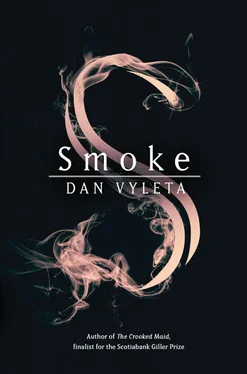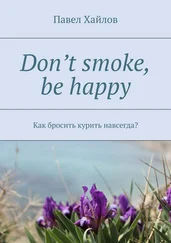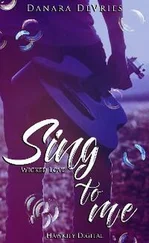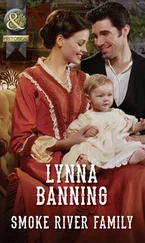Charlie keeps to the back of the shop until the woman is finished. The schoolboys are warned not to have any contact with the opposite sex other than the school nurse, though greetings, of course, are allowed. He takes off his cap when the lady turns to leave and holds the door for her; sees her smile with pleasure. Outside, she crosses the street holding up her skirts to avoid dragging them through muddy snow: a movement to the hips underneath that wasplike waist that puts a blush on Charlie’s cheek. The shopkeeper, too, looks after her with a certain fixity, a wisp of Smoke curling from somewhere at the back of his neck.
“Corsets, eh? Like tying a belt around a balloon. You always think it’s goin’ to blow. Above. Or below.” He makes a violent gesture that brings to mind a man with a garrote. Then he recalls he is speaking to a gentleman, albeit a schoolboy, tousle-haired under his cap. “Begging your pardon, of course. I was only speaking in jest.”
Charlie is unsurprised by his sudden deference, at once strategic and real. No police, no magistrates are needed to enforce it. It is written into their complexions, the man’s Soot-coarsened, Charlie’s soft and smooth. All the same, the grocer’s comments about the lady have put Charlie in a difficult position. As a gentleman, it is his duty to reprimand the man. But Charlie is also a minor, instructed to respect his elders, irrespective of their station. That, and he is here for a purpose.
A new customer relieves him of his uncertainty. It is the vicar, come in for a tuppence-worth of humbugs. Charlie immediately cedes ground to him, stands by the door with his cap in his hand, listens to their small talk. On his way out, the vicar stops, places his eyes on Charlie, and leaves them there for longer than is comfortable. He is an old man, close-cropped white whiskers meeting underneath his chin.
“Skiving?” he asks at last.
“I have a pass. From the school.”
“Ah. A good boy then.” The vicar digs in his paper bag. “Here, have a humbug.”
His eyes won’t leave Charlie until he has put the stripy sweet in his mouth. Then the old man sniffs the air.
“It smells of Smoke in here. Underneath all the sweet. Not yours? His then. Well, his kind are meant to. Go to hell, I mean. God’s natural order. Good day.”
He says this quite loudly, even cheerfully, then walks out of the door. Again both Charlie and the shopkeeper find themselves looking out the big front window, watching after the flutter of dark skirts.
“A true man of God,” Mr. Hodgson declares, rattling the vicar’s pennies in his fist. “Righteous. If not as charming as the lady.” His tone remains oddly poised between deference and derision: accepting the truth of the vicar’s words, yet enraged by them all the same. “And what would you like then?”
Charlie has anticipated the question and has worked out his answer, word for word, on the way over; has gone so far as to try it out on the empty country road where there was no one to hear. But now, faced with this man, his wheedling manner, the coarseness of his pockmarked cheeks, and the heavy atmosphere of the shop, he hesitates.
“Sir?”
“Liquorice,” Charlie improvises. “A penny’s worth.”
“Sweet or salty?”
“Salty.”
“I’ve snails and coins.”
“Snails, please. And a quarter pound of hazelnuts.”
“Anything else?”
Again Charlie hesitates, then is grabbed by the sudden fear that the vicar will return, or some other customer, and make his query impossible.
“A tin of sweets.” He is rushing through the words so fast, he himself can hardly understand them. “Beasley and Son. If it’s no trouble.”
“What’s that?”
“Beasley and Son. A tin. Or just some loose sweets, if that’s how they come.”
The shopkeeper’s reaction is curious. The first thing he does is step away from Charlie, look him up and down. Reassess him. But he is still the same skinny schoolboy in the same tidy uniform, his collar freshly starched. Then the man looks behind Charlie, as though he suspects him of hiding a second person behind his back; then on past him, at the desolate street. His face is a mask of calculation.
“Don’t know what you’re talking about.” Smoke frames the words like a shroud. “You better pay and get out.”
And then, as Charlie stands counting out coins: “Who sent you here?”
“Nobody. I just— The teachers have them. I have seen the little tins. Just ordinary hard-boiled sweets. Like caramels, only clear. There was a delivery not long ago. .”
Charlie trails off, unsure how much information he should part with. The school’s affairs are private. Nobody has ever instructed him to treat them as such, but it is a rule all the same. It’s like any other family. When there are guests at dinner, certain things are not to be discussed.
“Look here,” the shopkeeper barks with particular emphasis, as though defending his good name, “if there was a delivery it wasn’t from here.”
More Smoke pours out of him, not thick but oddly smelly. It paints dark blotches on his collar. Again he looks Charlie up and down; again he stares past him, out at the street, searching it for accomplices.
“How much was there, boy? How many tins?”
Charlie shakes his head. “I don’t know. A crate, I believe.”
All at once the man is shouting, sweeping Charlie’s pennies off the counter so they scatter on the floor.
“You’re a liar, you are. Out. I will make a complaint, don’t think I won’t. Out, out!”
The noise wakes the dog. It jumps to its feet, presses its ears flat against the side of its head, arches its back, then spins on its feet, trying to identify the source of danger. But Charlie has already retreated to the door. He lets himself out, the brown paper bag with his sweets in one hand. Outside, released from the atmosphere of boiled sugar and caramelized nuts, the cold air hits him like a slap. Through the window he sees the man shouting, shaking his fist above his head. The high, quivering yelp of his dog falls in with the man and follows Charlie down the street. Then the wind picks up and scatters their noise. All the same, it’s only at the edge of town that Charlie stops running.
The road to school seems longer on his return.
ф
Charlie tells him everything, starting with the letter. Thomas listens distractedly at first, then with ever greater intensity, biting off pieces of liquorice from an uncoiled snail.
“So what do you think?” Charlie asks when he’s finished his account.
“These are disgusting. You should have bought sherbets.”
“Be serious, Thomas.” But he can see from his friend’s face that he is, really; that he is thinking it over.
“I don’t know,” Thomas decides when the liquorice is gone. “Some sort of drug, maybe. Like opium.”
“Can’t be. You can buy opium in any pharmacy. Or laudanum, which is the same thing.”
“Something different then. More powerful than opium. Hence: forbidden.” Thomas shrugs. “We won’t really know until we get our hands on some. Here’s the thing, though. The shopkeeper knows about it. And so does your mother.”
Charlie bites his lip.
“Yes,” he says. “I think so too.”
“So everybody knows. It’s only we idiots who are kept in the dark.”
ф
Two days later Trout summons Charlie. He does not send Cruikshank: it’s a note he finds in his pigeonhole, unsigned. Report to the headmaster. Seven o’clock sharp. The note is so beyond precedence that right away Charlie knows he is in trouble. There is nothing, of course, that can be done. He will have to go. Trout will ask him how he came to hear of Beasley and Son. If Charlie mentions Cruikshank, Cruikshank will get the sack. If he does not, he will be in disgrace and make acquaintance with the dentist’s chair. A tribunal seems possible. A letter to his parents will already be in the post.
Читать дальше












